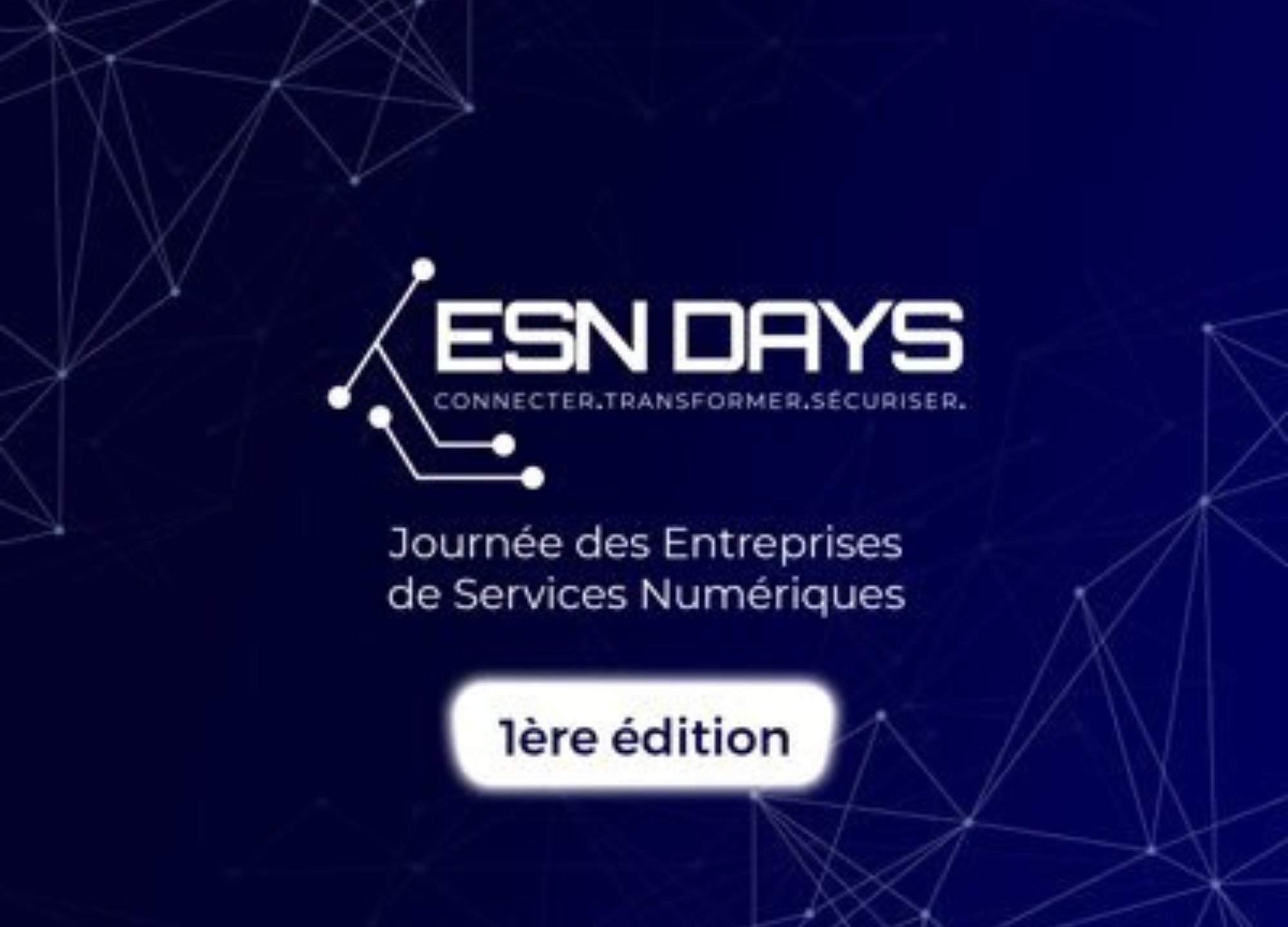Going into maturity allows digital service companies (ESN) to be more present on digital projects of private and public administrations. The first edition of ESN Days, in Cotonou on June 5, 2025, was an opportunity for them to learn to better respond to requests.

For the first time in Benin, digital service companies (ESN) and directors of information systems for public administration in strong digital transformation, discuss their solutions, needs and expectations. It is through the first edition of ENS Days held last Thursday, in the Beninese economic capital. The initiative comes from the club of decision -makers of information systems in Benin (Club DSI Benin). She brought together the ESNs, public company and institution CIOs, parapubliques and private and technical and financial partners.
The ESN Days aims to "provide information to the ESNs, give them methodologies and show them how to organize to work with public and private administrations ...", explains Fabrice G. Dako, president of the Benin DSI club.
This event is the response to the desolate findings noted in the ESN ecosystem. Among other things, organizations of organization, maturity, methodology was noted in the execution of orders. Result: their almost total absence on the execution of digital and other projects is remarkable.
"The ESNs have long been underestimated for the role they can play in the local economy, because we have too often underestimated the talented young people who have not found a gateway to entrepreneurship, and because our economic fabric needs solid, trained and certified providers, anchored in our societies. It is in this perspective that we decided to devote a day to value them and reveal them to the actors of the whole digital ecosystem, "adds the club president.
The event was organized in collaboration with German cooperation. It was also an opportunity for the Benin DSI Club to launch its "Digibuilders" program, an incubator dedicated to ESNs.
Rich exchange and experience sharing
On the menu of the ESN Days first edition, there were corporate stands and several other activities starting with the Master Class on the theme "Efficiency and excellence within companies in the digital sector: strategies for an optimized and efficient organization". She was hosted by Addetye Aguessy, CEO of Rightcom, a Beninese ESN which has crossed several deserts, but which today offers its solutions to large multinationals all over the world. Two panels, one on the theme "Companies of the digital sector at the heart of digital transformation: innovating, collaborating, securing", and the other on how "companies in the digital sector, constitute catalysts for innovation and digitalization in Benin", have nourished exchanges. To this are added the Key Notes on "the community of practices and e-services" and the "public service dematerialization market in Benin". During the latter Key Note, the participants had the opportunity to discover the work of the Digital Transformation Center set up by the government in collaboration with German cooperation.
"The goal (from our presence here) is to promote B2G (Business to Government), providing the information necessary for local businesses to allow them to compete in public service markets to support the State" in its dynamic of digitalization of services to citizens, details Martial Togbedji, project manager at the Beninese Information and Digital Systems (Asin - Benin).
This moment of exchange and sharing was beneficial for the participants. This is evidenced by Richard Odjrado, CEO of AS World Tech, an ESN specialist in connected objects: “It is a crucible which comes to build a bridge between the local ESNs and the public administration. It is a day that not only reveals opportunities to us, but also show us that there are possibilities to collaborate with the State ”. And for a first, the DSI club is satisfied with the results obtained at the evening of the event. See you in 2026 for a new edition of ESN Days, which offers more opportunities to businesses and more solutions to the State and to the private sector.
Article written by Ariel Gbaguidi









